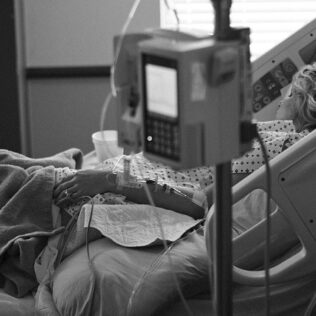Seriously ill patients are given prolonged heavy sedation in hospital intensive care units that can lead to delirium, increasing the risk of death and long-term cognitive damage. Because of the fast-paced nature of hospital ICUs, this condition is often missed. It is malpractice when medical professionals fail to recognize ICU delirium and fail to follow proper protocol to minimize its effects.
What is ICU Delirium?
ICU delirium is a condition where patients experience a sudden, intense confusion. This may include delusions, hallucinations, and paranoia. During this delirium, inflammation to the brain and the death of brain cells can occur. The delirium is usually triggered by sedation that is used when patients are in pain or on a ventilator.
Between 33 to 80 percent of patients experience delirium during ICU stays. Almost 25 percent of ICU patients continue to suffer from post-traumatic stress disorder after they are discharged from the hospital. Cognitive damage that is comparable to mild Alzheimer’s disease or a moderate traumatic brain injury can be found in 33 percent of patients of experience ICU delirium.
Reducing Delirium with the ABCDEF Bundle
The longer a patient suffers from ICU delirium, the more his or her cognitive abilities suffer. The duration of delirium can be reduced when doctors choose to administer fewer sedatives and manage pain with medications with less risk. Getting a patient mobile as soon as possible can also help reduce delirium.
While it can be impossible to completely avoid delirium during the patient’s hospitalization, following the protocol of the ABCDEF Bundle can help reduce its duration. Developed through the ICU Liberation Collective, ABCDEF focuses on:
- A – Assess, Prevent, and Manage Pain
- B – Both Spontaneous Awakening Trials and Spontaneous Breathing Trials should be performed on comatose patients and patients on ventilators
- C – Choice of Analgesia and Sedation to determine the right medication and the depth of sedation required
- D – Delirium – Assess, Prevent and Manage by understanding risk factors and using tools to prevent and treat delirium
- E – Early Mobility and Exercise to get patients moving more than just being repositioned in bed
- F – Family Engagement and Empowerment where family members are encouraged to ask questions and be involved in the patient’s care to help in a faster recovery

